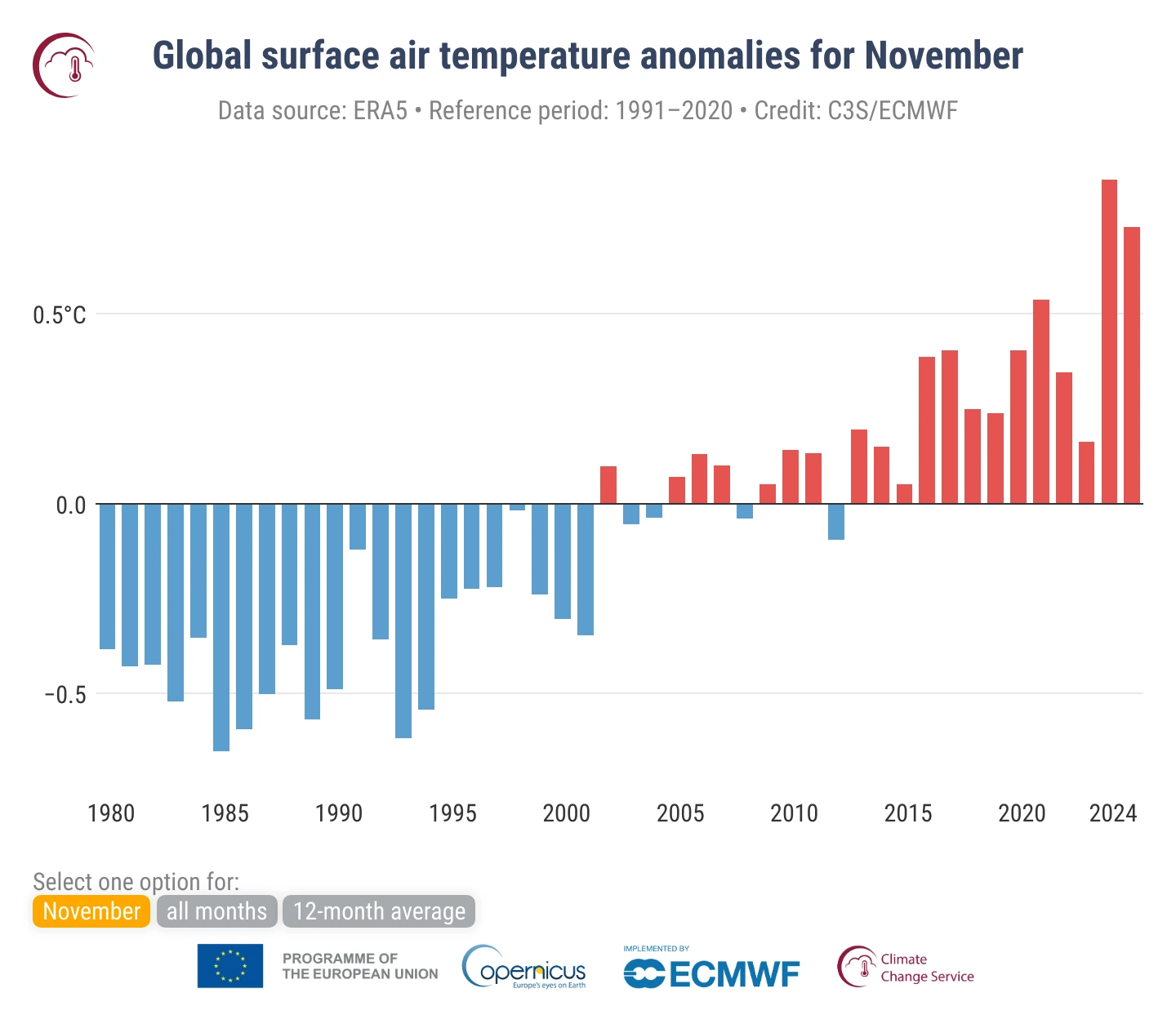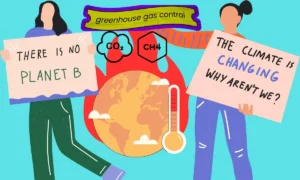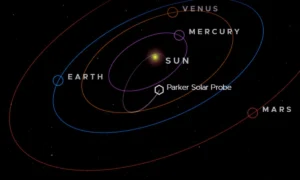November 2024 And 175-Year Heat Record!

November 2024 was Earth’s second-warmest month in 175 years of record-keeping, according to the National Oceanic and Atmospheric Administration (NOAA) data.
The month recorded a global average temperature 2.41°F higher than the 20th-century average of 55.2°F. November 2023 was hotter by 0.14 °F and therefore warmest on record.
The year 2023 was the hottest on record. However, there’s a 99% certainty for 2024 year to be the warmer and thus warmest as per data from the National Centers for Environmental Information (NCEI)’s Global Annual Temperature Rankings Outlook.
For the first 11 months, the global land and ocean surface temperature was 2.3°F higher than the 20th-century average. This makes 2024 the warmest recorded year to date.
Key Highlights:
- November 2024 – Second Warmest November: Only November 2023 was warmer, by 0.14°F.
- Asia experienced its warmest November on record.
- Oceania and South America had their second-warmest Novembers.
- 2024: 99% likely to be the Warmest Year on Record
- Arctic Sea Ice: Third-lowest extent ever recorded for November.
- Antarctic Ice: Lowest ever recorded coverage for November.
“The year-to-date (January–November) global surface temperature was 2.30°F (1.28°C) above the 20th-century average, making it the warmest such period on record. Every continent has had its warmest year-to-date period, except for Asia, which was second warmest.”
NCEI
The European Union’s Copernicus Climate Change Service had also reported that October 2024 was the second-warmest October on record, following 2023’s month of October.
Copernicus also observed that 15 of the last 16 months exceeded the 1.5°C warming threshold outlined in the Paris Climate Agreement.
“With Copernicus data in from the penultimate month of the year, we can now confirm with virtual certainty that 2024 will be the warmest year on record and the first calendar year above 1.5°C. This does not mean that the Paris Agreement has been breached, but it does mean ambitious climate action is more urgent than ever.”
said Samantha Burgess, Deputy Director of the Copernicus Climate Change Service.
Sources:






